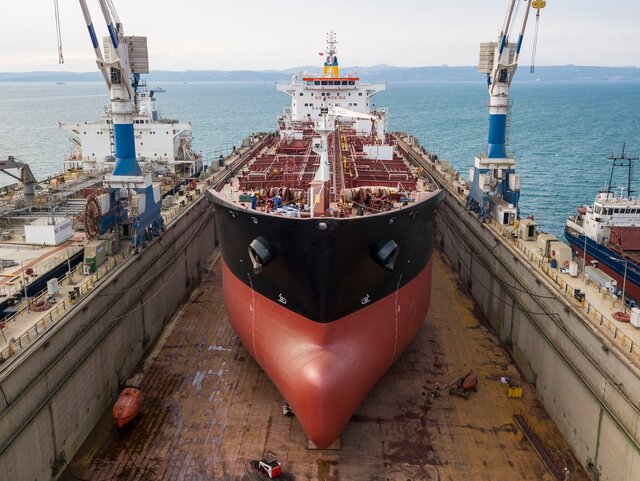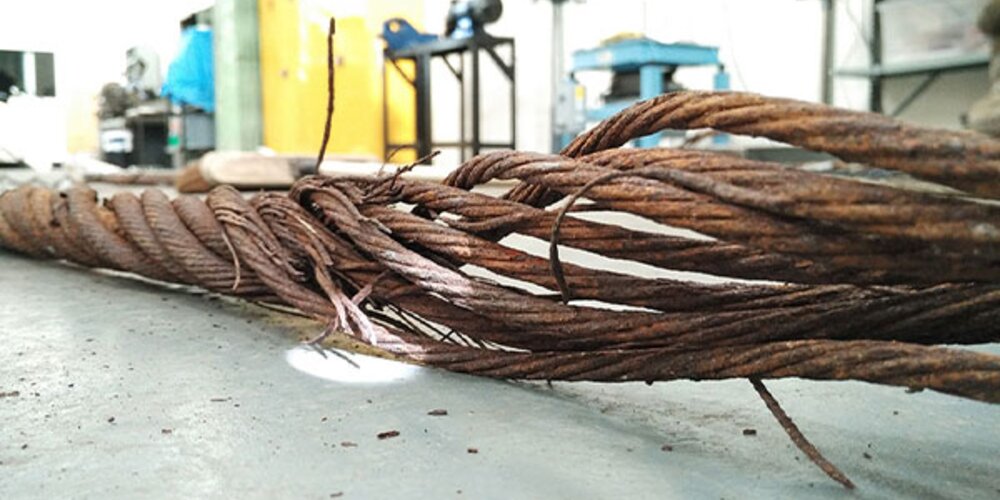Building starts for Brookes Bell’s new state-of-the art laboratory

The contracts have been signed and construction is about to begin on our new fuel testing, metallurgy and non-destructive testing (NDT) centre.
Chief Technical Officer, Ray Luukas, says:
“This is an exciting next step, the contracts have been signed for the fit out, construction commences on 3 August and the building is scheduled to be completed – coronavirus permitting – on 23 October.
“This will be a significant diversification of our services, but the new laboratory is just one aspect -we’ve also made extensive investments in new equipment and have hired some exciting highly skilled experts to head up these services.”
Our new laboratory, which represents an investment of £1.8million, will boast a variety of new equipment, including the Olympus DSX1000 digital microscope, the first of its kind in the UK. It has been purchased for a wide range of metallurgy and forensic engineering investigations, with many other applications including advanced paint flake analysis. It will allow the user to switch between a range of magnifications and inspection methods with ease while examining the microscopic aspects of broken and fractured components.
Added to which, over the last year we have recruited high-level chemists to lead and deliver the new services while expanding the NDT team with highly skilled specialists. The bigger team is well established and will provide a much more flexible onsite service with ample capacity to expand to meet customers individual requirements in marine engineering, industrial mechanical engineering, manufacturing and energy applications. Ray Luukas adds that:
“At the moment, much of our NDT work is centred around marine and energy services, but NDT opportunities are prevalent across many industries, similarly our metallurgy work is focused on the maritime sector, but metal is used everywhere. The new laboratory will act as a focal point to expand well beyond our traditional markets to offer unique, bespoke services everything from heat exchanger tube analysis to teak underdeck inspection for superyachts and aluminium superstructures.
“One thing that has become very clear in the last few months as a result of the global pandemic is that diversification is key to businesses survival and success. As a company that was established back in 1903, we are well versed in being ahead of the curve and anticipating new business developments.”
Introducing our new Fuel Services Technical Lead

We are delighted to welcome Jenny Davies, who joins Brookes Bell this month as our Fuel Services Technical Lead.
Jenny will be managing the establishment of the new Fuel Testing facilities, which will include advising on new equipment, drafting all the management procedures and securing the new laboratory’s industry accreditations, including the ISO17025 standard.
She has worked for many years in the environmental sector developing methods for persistent organic pollutants. She specialises in analysis environmental forensics by mass spectrometry and is skilled in laboratory management, ISO 17025 Quality Management Systems, test methods and analytical techniques.
Her last role saw her develop a laboratory and its services from just ten chemists to 180 specialist technicians with an accompanying range of services.
Judith Fergus passes professional exams with flying colours

Our Marine Coating Consultant, Judith Fergus has passed her latest professional qualifications with flying colours, despite having to sit the exams remotely and having to talk her examiner through a step by step practical for one of the exams, as a result of coronavirus restrictions.
Judith Fergus has successfully passed the ‘Institute of Corrosion Examination for the Coating Inspector (including Offshore and Marine)’ which involved 60 hours of self-learning modules, five written papers and one practical for ICorr Level 2. She scored high marks in each of the five parts of the examination but achieved 100% pass mark in the General Examination.
Judith has also passed the ‘IMO Performance Standard for Protective Coatings (PSPC)’ exam meaning she is now also a qualified IMO PSPC Paint Inspector for new builds.
Congratulations Judith!
Spotlight on Metallurgy, Inspection & Non-Destructive Testing

Brookes Bell’s metallurgy division is highly skilled in the investigation of quality issues, defects and any failures in any type of metallic component, Ken Kirby, Director of Metallurgy and NDT explains what his team cover in their work.
Our metallurgists examine the properties of metals and materials, exploring way they behave in different environments, such as when exposed to high temperature or when loaded, analysing the behaviour of the metal or material and determining how this interaction might have affected the component during service.
In many ways a forensic investigation is like looking at disassembled jigsaw puzzle; it’s complex but the majority of pieces of the puzzle are there, and we recreate the circumstances and piece together the clues to establish a picture of what really happened.
Our role in an investigation can be quite adversarial, and we often come up against other specialists and experts presenting their findings, so it is very important to determine all the facts. In the field, metallurgists have at their disposal advanced means of analysing material properties, such as Non-Destructive Testing (NDT) methods and can identify important evidence that would not be apparent to an unskilled observer. The metallurgy department at Brookes Bell has several, highly skilled NDT experts who are trained in the use of various advanced techniques, such as Eddy Current array, Phased Array Ultrasonic Testing (PAUT) and Time of Flight Diffraction (TOFD) to name but a few methods at their disposal.
Our work is very varied, we could be investigating a crane failure one day or corrosion to the holds of a vessel the next. In the case of corrosion to a vessel, for example, it is widely known in shipping that sulphur is corrosive to steel if it’s wet, but it’s often loaded wet and so there needs to be a means of providing corrosion protection to the holds before loading. If that corrosion protection fails, then a lengthy investigation and repair often follows. There are so many aspects to deal with in corrosion cases, particularly following carriage of sulphur, and it requires a combination of both experience and knowledge to deal with such issues.
Another example of work commonly undertaken by our metallurgy department is crane wire-rope failures. Wire ropes are subjected to a challenging environment of fluctuating loads, corrosion and wear and they require careful maintenance and inspection throughout their lifetime. There are standards which govern the inspection of wire ropes and these standards, in addition to the metallurgical aspects, need to be understood if one is to investigate a wire rope failure. There may be more than 150 individual wires in a crane wire rope, and it is sometimes necessary to inspect every single wire to determine how a failure occurred.
Our investigations are usually multi-discipline, working with Brookes Bell’s engineers and master mariners, to apply their experience and knowledge to the situation. As investigations become more and more complicated, more advanced skills are needed to investigate failures. Brookes Bell offers the right services with the right people. We are all highly skilled specialists and in a forensic investigation you don’t need a generalist, you need the very best in each field and that’s what we can pull in.
Looking ahead, the new Metallurgy and Fuel Testing laboratory will give us state of the art facilities and allow us to offer an even wider range of unrivalled services and specialist expertise – it’s going to be very exciting!
Meet the team - Judith Fergus, Managing Coating Consultant

My specialism is marine and protective coatings, I look at anything to do with paint coatings, it could be on ships, on yachts, oil rigs or even petrochemical sites, there are many, many different kinds of paints for all these different settings, but at the end of the day it’s all paint.
I’ve been doing this for over 30 years now and my experience covers research and development, business development and sales with global companies. I live in Newcastle and have been commuting up and down to Liverpool on a weekly basis for the last nine months, having ‘enjoyed’ five months of coronavirus lockdown, commuting anywhere now feels quite exciting!
I started out with a degree in Applied Chemistry at the University of Northumbria and got a job with a large paint manufacturer where I worked as a polymer chemist. In time I got bored and moved to the paint labs as a technologist, making and developing new paints. I ended up as a technical manager talking and presenting to clients – dealing with their problems and handling any issues relating to the paint, its application and performance.
From there I worked for a company developing fire protection products, travelling to and from Japan frequently. I admit I miss travelling to Japan, I loved the people, the culture and made good friends with some great nights out on my visits over!
Now I work in a mixture of marketing and technical and am qualified in both. I can’t believe I embarked on a marketing degree with two small children (now grown up) revising at all hours, but I did! It was a perfect combination – I am a chemist and chemists investigate, always seeking answers, I love forensic investigations and I really enjoy talking to people about the process and what I’ve found, so it seemed like the natural link.
I joined Brookes Bell in October last year, and work with Dr Luigi Petrone who’s based in Singapore. We investigate and report on a wide range of problems relating to paint failure and loss of performance, particularly cargo tank failures, coatings issues and hull fouling disputes. Obviously, anything to do with the hull affects the vessel’s speed and performance and costs money, similarly a problem with a cargo tank means the vessel might be taken off hire with dramatic economic implications. We are handling more and more business in this area, the right tank coating with correct maintenance and small repairs should last up to ten years, so a situation where there’s a problem is very serious and costly quite quickly.
I deliver training on marine coatings for clients too. I have recently done a webinar on biofouling and am now writing a white paper on the same subject. That’s one thing I have really missed with lockdown, the client contact, so much of our jobs are about meeting people and talking to them – you do your best over Zoom and Linkedin, but it’s not the same, we build relationships face to face, but I suppose it’s a challenge we’re all tackling now.
When I’m not working, I’m a keen traveller (having visited 62 countries) and love walking. The Northumberland coast is very beautiful and there are some fabulous National Trust properties, plus I’m being kept busy with a small dachshund puppy. He’s a typical dachshund and insists on trying to walk in front when we’re out despite being so small, my other dog a spaniel, is regularly putting him in his place though when he gets too much.


